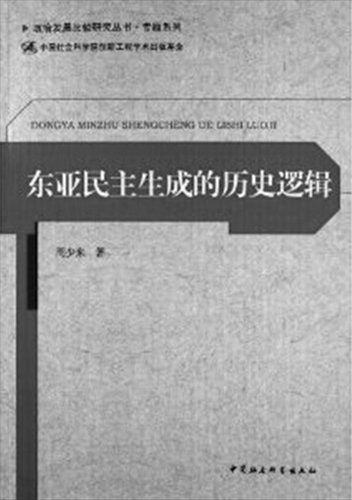East Asian democracies deeply marked by local cultures and histories

Zhou Shaolai, The Historical Logic of the Generation of Democracy in East Asia, China Social Science Press, August 2013
Democracy is a universally recognized ideal of humanity's political life and democratization represents a profound political and social revolution. The realization of democracy is accompanied by twists and tribulations, in East Asia as elsewhere.
Democratic transition is a difficult process and it should be structurally analyzed so as to provide us with an understanding of its development path, or so the newly published book The Historical Logic of the Generation of Democracy in East Asia by Zhou Shaolai, senior fellow and director of the political theory study section at Institute of Political Science under the Chinese Academy of Social Sciences, argues.
Zhou characterizes democracy in East Asia as being late-developing, deeply affected by others and diversified. He marks out the first are the characteristics that distinguish East Asian democracy from the West, but emphasizes democracy's diverse nature in East Asia.
Zhou holds that democracy is both universal and particular at the same time, and illustrates this through looking at the various paths that different East Asian countries took toward democracy over the course of the 20th century.
The democratic structure of constitutional monarchy in Thailand was created by Thailand's peculiar status as the sole remaining independent nation caught between the British and French colonial powers in the region, which today casts the shadow of military intervention on Thai multi-party democracy.
In South Korea, a confused period of experimentation in multi-party democracy and the space for opposition parties slowly opened up by the military authoritarian regime jointly laid the foundation for today's republican political system.
Influenced by the US, the Philippines started its bipartisan presidential republican political system in 1935. Although this process was interrupted by Ferdinand Marcos, former president of the Philippines from 1965 to 1986 who ruled as a dictator, a democratic political structure was still able to establish itself despite the weak economic background and complex traditional political culture.
Such particularity has local characteristics, which produces a rich and colorful variety of democratic politics as part of political civilization. But it does not deny the universality of democracy.
Behind different policies, these various paths share commonalities: State authorities are increasingly open, a growing number of parties are established by law and operate openly, civil rights and liberties have gradually been implemented, and civil society has become more and more powerful.
Despite the individual peculiarities of different democracies, Zhou concludes that the development of democracy is already a strong trend in East Asia. East Asians are strongly pursuing democracy and the ideals have become deeply-rooted in the region.
Democracy in East Asia has often been doubted and questioned. Zhou's book clearly conveys two messages.
First, the development of democracy has no predetermined route, and individual paths should be noticed and respected.
Second, although East Asian democracy is not fully mature yet, nonetheless, democracy in this area is already well on the way.
Although its future development remains unknown to all, the development of democracy in Asia has an unstoppable momentum.
